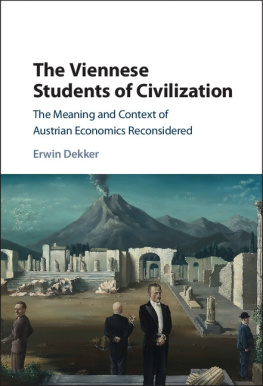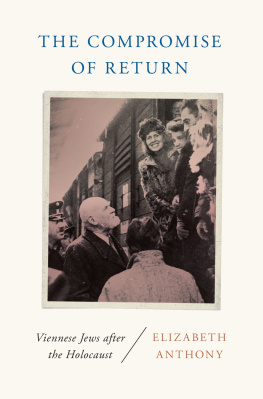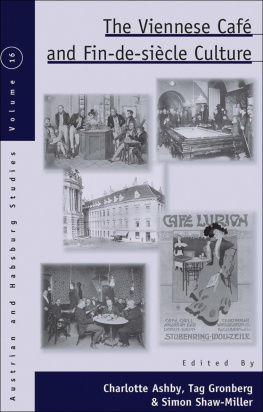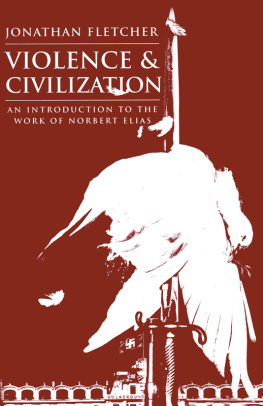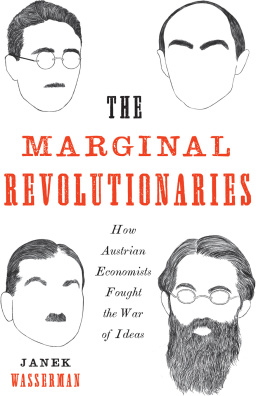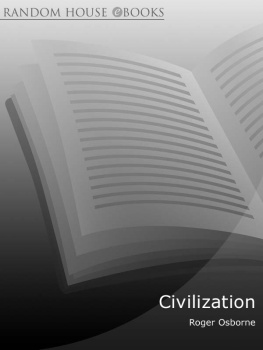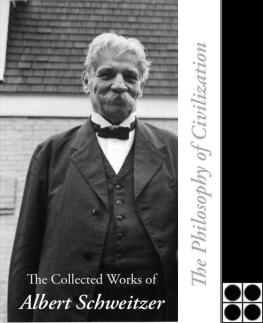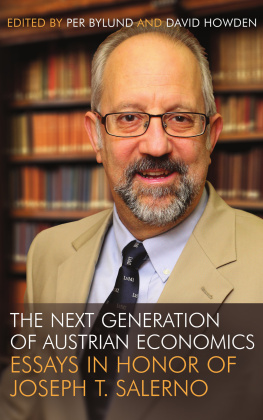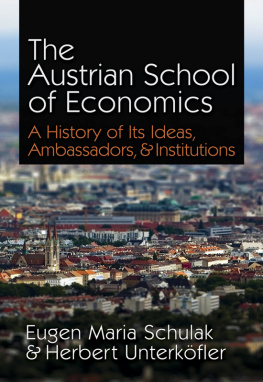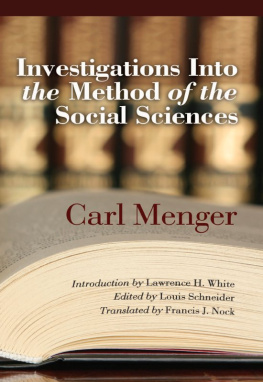Acknowledgments
This book is the outcome of a great number of conversations over many years. Most prominently, these conversations have taken place with my PhD supervisor Arjo Klamer, who taught me so many things that I frequently find myself wondering how much of the thoughts expressed here are his and how many are mine. More than anything, however, he has taught me as he has so many people around him the importance of conversations for academic work. Those conversations started a long time ago, but they especially took off during my study of economics at the University of Amsterdam, where I met Thomas de Haan, Pjotter Oudshoorn and Menno Broos who still willingly endure my conversations about economics every two weeks.
My encounter with the history of economic thought was made possible by the, unfortunately disbanded, History and Methodology group at the University of Amsterdam. Harro Maas, Marcel Boumans, John Davis and Geert Reuten showed me that economic thought was much more fascinating, deeper and especially broader, than any of the textbooks up until that point had suggested. I especially thank Harro for encouraging me to pursue the subject at the London School of Economics or LSE. At the LSE especially Mary Morgan showed me what serious academic work in the history of economic thought looks like. It was also the place where I first truly encountered the wonderful world of the arts under the friendly pressure of the many wonderful and generous fellow students and new friends I met.
Little did I know then that there was a field called cultural economics in which I would be teaching in less than two years. This dissertation although still firmly rooted in the history of economic thought has benefited greatly from the many cultural economists I met at Erasmus University of Rotterdam, and what they taught me about art, culture and economics. The conversations in the biweekly and later weekly Economics and Culture seminars are what have kept me going through the years. I would like to thank all the frequent participants to the seminar over those years: Hans Abbing, Renate Buijze, Aldo do Carmo, Thora Fjeldsted, Christian Handke, Lili Jiang, Priyateja Kotipalli, Cees Langeveld, Mariangela Lavanga, Slawek Magala, Anna Mignosa, Ad van Niekerk, Mark van Ostaijen, Sofia Patat, Lyudmilla Petrova, Diane Ragsdale, Claartje Rasterhoff, Ieva Rozentale, Bertan Selim, Liesbeth De Strooper, Joke Tacoma, Paul Teule, Marilena Vecco, Filip Vermeylen and Claudine de With.
My colleagues, P.W. Zuidhof and Peter Rodenburg, at the European Studies Department of the University of Amsterdam were a continuous stimulus for thinking broadly about economics and to never forget its political aspects. My colleagues Marleen Rensen, Carlos Reijnen and Marjet Brolsma were of great help in initiating me to the cultural studies of the interwar period. And I would like to thank Michael Wintle for his faith and honesty in me during my time at the European Studies Department. My fellow Ph.D. students at the Erasmus Institute for Philosophy and Economics were always willing to talk and discuss about the relevance and necessity of philosophy for the study of economics and the history of economic thought. I would like to thank especially Thomas Wells, Tyler DesRoches, Franois Claveau, Sine Baatur, Luis Mireles-Flores and their academic director Jack Vromen.
After my graduation, Pete Boettke and Robert Leonard were very encouraging and of tremendous help in making the final steps that turned my dissertation into this book. I was also greatly helped by the anonymous reviewers who took the time and effort to read and comment on the manuscript. They pointed out many mistakes, so I take complete responsibility for any that remain.
When I started working on this book some six years ago, I also fell in love with Katinka, who would prove the most valuable support throughout the years. She proved what Arjo always tried to teach me, that our work is personal. I would like to thank her for enduring the lows and sharing the highs of the writing process with me. Finally, I would like to thank my parents and sister who have always supported me in my choices, even though they did not completely understand their direction or purpose.
Introduction
Late visitors to Pompeii
In 1931, Carel Willink gentleman on the left in his brown suit somewhat suspiciously looks over his shoulder toward us, while the gentleman in blue on the right is clearly facing away from us. It seems that they have stopped talking to one another quite some time ago.
In the background we see the ruins of Pompeii; they are still illuminated, or is it the other way around? Do the ruins still radiate some light? In any case, that light fails to reach the gentlemen. The formerly prestigious buildings have been in need of repair for a long time, and at certain places the bushes even overgrow the ruins. The forces of nature seem to be on the winning hand. To emphasize this even more, a volcano is emitting smoke in the background. This mountain of doom, the Vesuvius if these are the ruins of Pompeii, is about to erupt. It is clear that whatever these gentlemen had in common, the civilization of which they were once part, is in serious danger. They seemed to have turned away from their common project; no longer are they willing to cooperate. And even though one of the four gentlemen is overlooking the ruins, he looks anything but alarmed.
Looking at the painting we cannot escape thinking of the period in which Willink was working on it. The early 1930s were indeed a time in which the various European countries turned inward and away from one another. It was a period during which international cooperation broke down, a period during which even more serious dangers in the form of fascism and Nazism were becoming clearly visible. The painting thus not only shows the ruins of an old civilization, but also the ruins of our own civilization. Willink presents a dark prophecy for Europe and its culture. The only beam of light is emitted from these ruins, as if Willink is saying there will only be hope if we somehow return to our common project, our shared goals and values. A first step in that direction would be for these gentlemen to turn around, and recommence a conversation which has long ceased.
suggest that we have come to learn this lesson much too late, that all hope at this point is in vain?
You might wonder why a book on a group of scholars from Vienna starts with an analysis of Willinks picture. The reason is simple. This book will argue that the issues we just discussed and the questions raised by Willinks painting are at the heart of the work of the Viennes students of civilization. Of course this is only indirectly true, for this is a book about social scientists, philosophers and intellectuals from Vienna, rather than about Carel Willink or art. But the Viennese students of civilization who will be the main protagonists in this book are facing many of the same problems. During the 1930s, they felt that their civilization was in decline, or even about to be destroyed. When Ludwig von Mises, one of the Viennese students of civilization, walked along the grandiose Ringstrasse of Vienna with one of his students he gloomily predicted that grass would grow where they were walking now. But however depressed Mises and his fellow intellectuals might have felt at the time, they did feel that this civilization was worth preserving. Perhaps more importantly they asked themselves what their own role was in this process. Had they played a role in this decline? Were they to blame? Did they have a responsibility to defend their civilization, and even if they wanted to, was there anything they could still save?
It was not just a circle of scholars around Mises who were deeply worried. The intellectual mood in Vienna had been pessimistic since the period leading up to WWI. There were great concerns about the political developments within Vienna and the broader empire, most notably the populist anti-Semitism of Viennese Mayor Karl Lueger, and the various nationalistic uprisings in the Empire. When the Empire was broken up after WWI, many intellectuals felt that this was a great loss, one that broke up a natural unity. Only a small minority, mostly those on the left, believed that the dissolution of the Empire was the perfect opportunity for a new start. Liberal and conservative intellectuals on the other hand increasingly started worrying about the fate of their beloved Austro-Hungarian Empire and its culture.

